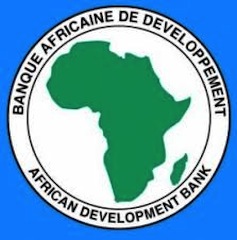African Development Bank approves $133.60 million in financing to Sudan
September 29, 2014 (KHARTOUM) – The African Development Bank (AfDB) agreed last Wednesday to extend $133.60 million to Sudan over the next two years aimed at financing “strategic technical assistance, capacity building and targeted operations critical to preventing Sudan from sliding into deeper fragility”.
 The AfDB Board of Directors noted that “daunting political challenges” remain despite good progress on political and economic fronts adding that they observed Sudan’s keenness to re-engage with the international community.
The AfDB Board of Directors noted that “daunting political challenges” remain despite good progress on political and economic fronts adding that they observed Sudan’s keenness to re-engage with the international community.
“This difficulty to make headway, especially on debt relief front, comes with the risk that the country could slide into deeper fragility that could have regional implications and painful costs. This risk is exacerbated by the conflict in South Sudan,” AfDB said in its Sudan’s Country Brief 2014-2016.
It added that while the recent economic reforms are endearing donors to slowly scale up engagement, the slow progress on debt relief and lack of access to concessional financing could reverse important policy reforms gains and stall progress in poverty reduction and social service delivery.
Sudan’s external debt is estimated to have grown by 38% since 2008 from $32.6 billion to $45 billion in 2013. The Internationally Monetary Fund (IMF) forecasted the debt level to reach $46.5 billion in 2014 and $48.1 billion in 2015.
The IMF said in a statement this month that resolving Sudan’s debt is of “paramount importance for the successful adjustment to the impact of South Sudan’s secession, implementation of the government’s poverty reduction policies, and for supporting inclusive growth”.
“While Sudan has made some progress toward meeting the requirements for debt relief, the mission reiterated the importance of securing broad support for comprehensive debt relief from Sudan’s bilateral external creditors,” the statement reads.
The IMF urged Khartoum to reach out to external creditors, including under the framework of the Joint Approach with South Sudan and the African Union High-level Implementation Panel (AUHIP).
Last year, the IMF deputy director of the Middle East and Central Asia department Edward Gemayel, warned that it will be near impossible for Sudan to secure debt relief even if it satisfied technical and economic requirements.
Gemayel, who led a delegation to Khartoum, went on to say that Sudan won’t be able to benefit from the Heavily Indebted Poor Countries (HIPC) initiative despite fulfilling its conditions unless it succeeds in convincing all 55 members of the Paris Club creditor nations whom he said have the power to slash 67% of conventional debt owed by Sudan.
Khartoum inherited the entire external debt that existed prior to the secession of the south. The two countries have yet to agree on how to split up the debt.
Both sides decided to reach out to creditors to obtain debt relief and if that fails will sit down to see how it can be divided using the “zero option”.
(ST)
